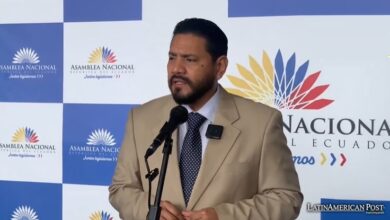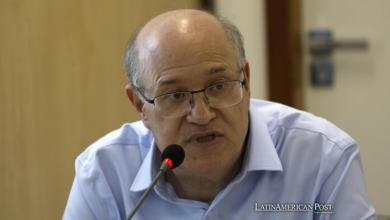The ‘success’ of Venezuela’s recent prison raids called into question
Venezuela's government faces scrutiny for irregularities in a prison operation aimed at dismantling criminal structures, raising doubts about its success and transparency.

Carlos Seijas Meneses (EFE)
Escucha este artículo
Experts say that the operations carried out in five Venezuelan prisons since September, part of the government’s plan to dismantle the criminal structures operating in the penitentiary system, have been plagued by irregularities, failures, and a lack of information that call into question the “success” claimed by the authorities.
The Vista Hermosa prison seized this week is the fifth to be raided in less than two months, after Tocorón – the birthplace of the transnational criminal organization known as Aragua Train – Tocuyito, Puente Ayala, and La Pica.
The government of Nicolas Maduro claims that the interventions are aimed at “revitalizing the penal system” and regaining “total control” of the prisons, but has not explained when or how it lost control of them.
The general director of the NGO Venezuelan Prison Observatory, Humberto Prado, says it is “necessary for the government to regain command of the prisons,” which have been “handed over” to criminals who have developed operations “under the complicit gaze of the state.”
However, Prado told EFE that the government’s accounts of the raids have been incomplete and that during the operations there were failures and irregularities related to transfers, escapes, and deaths.
He also criticized that the operations had a “military” and “police” focus, instead of a “social and penitentiary” one, with an enormous deployment of officers that he found not very credible. For example, the government claimed that there were “more than 11,000” officers involved in the Tocorón raid, but Prado says that number of people “does not fit” in that facility.
Silence
Director Pardo noted that there is a “total” silence regarding the “situation of the people who died” during the raids, while the Observatory reports that five inmates died during the raid in Tocuyito.
He pointed out that a 27-year-old died when he did not receive medical attention due to an epileptic seizure he suffered in the middle of the intervention, which began with Police “throwing tear gas bombs” inside the prison.
“This is not being talked about, and that worries us,” said Prado. The director also said that “there has not been enough information” about the transfer of prisoners to other facilities, which has caused anxiety among their relatives, who have taken to the streets around the prisons to demand news of their loved ones’ whereabouts.
On the other hand, according to the director, the evacuations will aggravate the situation of overcrowding in Venezuelan prisons, which he expects to double, a problem that he believes could be avoided by reopening the closed centers.
According to a study by the NGO, in 2022 there was a 64.19% overcrowding in Venezuelan prisons, with 33,558 inmates compared to an “actual capacity” of 20,438 places.
Carlos Nieto, general coordinator of Una Ventana a la Libertad, another NGO, warns that these “surprise” operations demonstrate the “chaos that exists in the prison system” and will increase the “overcrowding that already exists in the other prisons.”
The raids were also supposed to include the recovery of escaped prisoners, although the Observatory believes that the authorities negotiated with criminals who held power in the prisons for their release prior to the raids, citing the case of Héctor Guerrero, alias “Niño Guerrero,” leader of the Aragua Train, who was supposed to be serving a 17-year sentence in Tocorón prison, but who was not there when the raid took place. The government denies that there were “any negotiations.”
An “open secret”
In 2017, the government assured that there were no drugs, weapons, mafias, or violence in 98% of prisons.
However, in the development of this operation, war weapons were found, such as assault guns, grenades, explosives, rocket launchers, and various ammunition, in addition to thousands of cartridges of ” various calibers “, cell phones, and “narcotic and psychotropic substances”, according to the official balance.
President Nicolás Maduro said on Oct. 30 that the “long guns” found in the first four operations totaled “more than 600.”
Also read: Mexico's Women in Crisis Behind Bars: Rising Suicides Spotlight Systemic Fail
Authorities also said that the interventions dismantled conspiracy and extortion centers, slavery mechanisms, and criminal structures.
For Prado, these results “do not come as a surprise,” since it was “an open secret” that such things were happening inside the prisons, especially inside Tocorón, where there was a swimming pool, playgrounds, restaurants, shops, and buildings with air conditioning and satellite TV, as EFE verified during a partial tour of the center.





